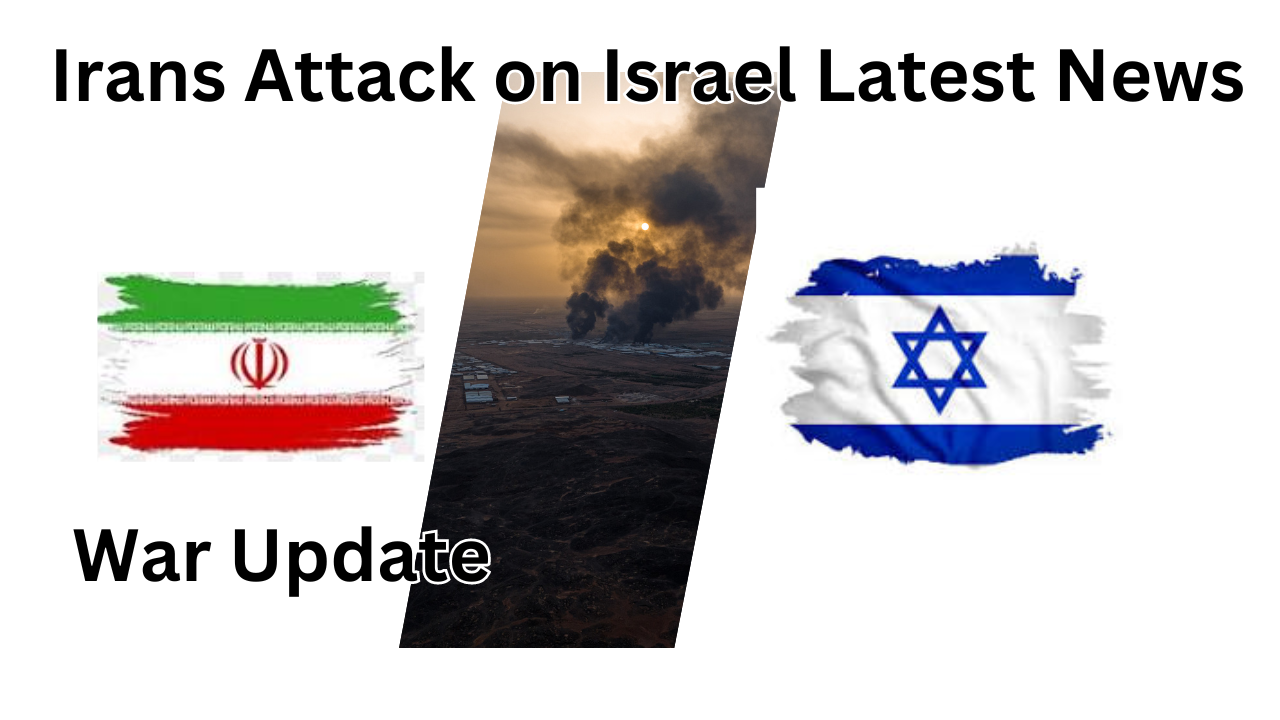Iran’s Attack on Israel Latest News.
Introduction
Iran attack on israel In early October 2024, Iran launched a significant ballistic missile attack on Israel, marking one of the most critical escalations in the region’s recent history. This attack comes amidst long-standing tensions between Israel and Iran, which have intensified in recent years due to ongoing proxy conflicts in Lebanon, Syria, and Gaza. Iran’s missile strike and Israel’s military responses have brought the Middle East to the brink of a broader conflict, raising concerns among global powers about regional stability and the potential for a wider war.
Background: Israel-Iran Relations
The animosity between Israel and Iran has deep roots, exacerbated by ideological, political, and military factors. Since the 1979 Islamic Revolution, Iran’s government has been staunchly anti-Israel, supporting militant groups such as Hezbollah in Lebanon and Hamas in Gaza, which are engaged in continuous conflict with Israel. Over the years, both nations have been involved in direct and proxy confrontations, with Israel regularly targeting Iranian military infrastructure in Syria and Iraq to prevent Tehran from gaining a foothold near its borders.
The most recent tensions have been particularly sharp. In the months leading up to the missile attack, Israel conducted targeted airstrikes in Syria and Lebanon, including the killing of high-ranking Hezbollah leaders such as Hassan Nasrallah.
For more info : POLITICO:
. These actions, coupled with Israel’s military incursions into Gaza, have increased regional instability and drawn retaliatory threats from Iran.
The October 2024 Missile Attack
This attack followed a series of Israeli military operations in Lebanon and Gaza, particularly targeting Hezbollah and Hamas, both of which have strong ties to Iran. According to Israeli defense officials, the missiles were launched from within Iran, aimed at multiple strategic targets across Israel. POLITICO
.
Fortunately, most of the missiles were intercepted by Israel’s advanced air defense systems, including the Iron Dome and David’s Sling, with assistance from U.S. forces stationed in the Mediterranean. U.S. military destroyers also played a critical role, firing interceptor missiles to neutralize many of the incoming projectiles
. Despite the large-scale attack, there were no immediate reports of major casualties or damage within Israel, giving the country time to plan its response. MilVet News & Jobs.
Iran’s Motivation for the Attack
Iran’s missile attack was framed as retaliation for Israeli operations that targeted Iranian interests in Syria and Lebanon. Iran’s government claimed the strike was a “legitimate response” to Israeli actions, particularly highlighting the assassination of senior Hezbollah leader Hassan Nasrallah in Beirut. Moreover, Tehran’s narrative framed the missile attack as a reaction to Israeli violations of Iranian sovereignty and attacks on Iranian nationals in the regionPOLITICO.
Another driving factor behind the attack is Iran’s desire to assert its influence and show strength in the face of regional and international pressures. In recent years, Iran has been grappling with economic challenges due to U.S. sanctions, internal political unrest, and the declining influence of its proxies in the region. By launching a direct attack on Israel, Iran may be attempting to solidify its standing among its allies, particularly Hezbollah and Hamas, while also signaling to its domestic audience that it is capable of defending its interests against foreign aggression. MilVet News & Jobs.
Israel’s Response and Military Strategy
In the immediate aftermath of the missile attack, Israeli authorities assured the public that their defense systems were prepared to handle the threat, and air raid sirens were activated across the country, prompting citizens to seek shelter. The Israel Defense Forces (IDF) issued a statement declaring that they were fully prepared to retaliate at a time and place of their choosing. IDF spokesperson Rear Adm. Daniel Hagari stated that the attack would have “consequences” for Iran
.
Israel is now faced with multiple options for retaliation. While Israel has historically followed a policy of “eye-for-an-eye” when dealing with missile strikes, targeting only military assets in response, there are indications that it may escalate its response this time around. Military experts suggest that Israel could consider striking Iranian infrastructure such as oil, gas, and petrochemical facilities, which could potentially destabilize Iran’s economy and provoke domestic unrest against the regime.
.
The extent of Israel’s retaliation will also depend on U.S. involvement. The Biden administration has pledged support for Israel, but there is a balancing act at play. While the U.S. wants to project strength and deter further Iranian aggression, it is also wary of being drawn into a protracted conflict in the Middle East that could have global repercussions, including spikes in oil prices and the destabilization of key American allies.
.
Regional and Global Implications
The missile attack has escalated tensions in an already volatile region. Iran’s direct involvement in launching missiles at Israel, as opposed to relying on proxy forces like Hezbollah or Hamas, is a significant shift in strategy and could prompt a broader conflict. Hezbollah, which operates from southern Lebanon, has already increased its attacks on Israeli targets in support of Iran, further complicating the situation.
.
In addition to the risk of war between Israel and Iran, the broader Middle East could be drawn into the conflict. Countries like Saudi Arabia, Jordan, and Egypt, which have complex relations with both Israel and Iran, could find themselves involved in a larger regional war. Furthermore, the U.S. has bolstered its military presence in the region, deploying additional fighter jets and missile defense systems to deter further Iranian aggression.
.
Global powers, including Russia and China, are closely watching the situation. Both nations have strong ties with Iran and have been critical of Israel’s military actions in the region. Any escalation could shift the balance of power in the Middle East and force major global powers to take sides, potentially leading to a wider international crisis.
Conclusion
The missile attack by Iran on Israel in October 2024 marks a dangerous escalation in the long-standing conflict between the two nations. While the immediate damage was limited due to Israel’s advanced defense systems, the attack has heightened fears of a broader regional war. Israel’s response, likely to target Iranian military or infrastructure assets, will be closely watched by both regional and global powers. As the situation continues to evolve, the world remains on edge, with the potential for a wider conflict that could reshape the Middle East for years.
Diplomatic efforts to de-escalate tensions are critical, but given the complex web of alliances, historical grievances, and geopolitical stakes, a peaceful resolution may be challenging. The next steps taken by Israel, Iran, and their respective allies will determine whether the region plunges into further chaos or finds a path toward stability.

